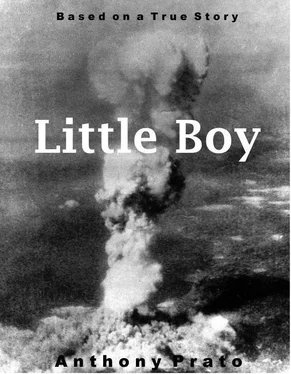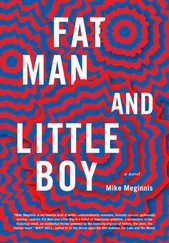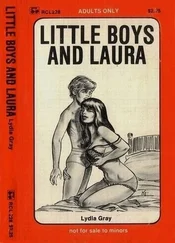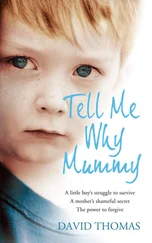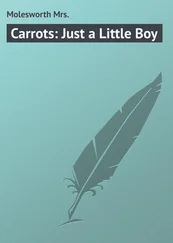Christopher Prato - Little Boy or, Enola Gay
Здесь есть возможность читать онлайн «Christopher Prato - Little Boy or, Enola Gay» весь текст электронной книги совершенно бесплатно (целиком полную версию без сокращений). В некоторых случаях можно слушать аудио, скачать через торрент в формате fb2 и присутствует краткое содержание. Год выпуска: 2013, Издательство: Smashwords, Жанр: Современная проза, на английском языке. Описание произведения, (предисловие) а так же отзывы посетителей доступны на портале библиотеки ЛибКат.
- Название:Little Boy or, Enola Gay
- Автор:
- Издательство:Smashwords
- Жанр:
- Год:2013
- ISBN:нет данных
- Рейтинг книги:3 / 5. Голосов: 2
-
Избранное:Добавить в избранное
- Отзывы:
-
Ваша оценка:
- 60
- 1
- 2
- 3
- 4
- 5
Little Boy or, Enola Gay: краткое содержание, описание и аннотация
Предлагаем к чтению аннотацию, описание, краткое содержание или предисловие (зависит от того, что написал сам автор книги «Little Boy or, Enola Gay»). Если вы не нашли необходимую информацию о книге — напишите в комментариях, мы постараемся отыскать её.
Little Boy or, Enola Gay — читать онлайн бесплатно полную книгу (весь текст) целиком
Ниже представлен текст книги, разбитый по страницам. Система сохранения места последней прочитанной страницы, позволяет с удобством читать онлайн бесплатно книгу «Little Boy or, Enola Gay», без необходимости каждый раз заново искать на чём Вы остановились. Поставьте закладку, и сможете в любой момент перейти на страницу, на которой закончили чтение.
Интервал:
Закладка:
“I’m not,” I said. “I promise, baby.”
Kyle would’ve been proud.
Several days later, when I saw Maria again, I gave her the following poem that I’d written about her:
It’s so easy to hurt the one that you love—you don’t even have to try.
Without second thoughts or serious doubts, you’ll place a tear in her eye.
Testing her love must be done, though you know it’s not the right way.
But when it happens you simply must hope she’ll love you again the next day.
I wrote the poem because, more and more, I was falling in love with Maria, and I knew that she felt the same way. But I had two problems. First, I was getting more and more jealous of her, and I was beginning to not be able to stop myself from testing her, questioning her. It’s hard to describe. Strangely, I still feel the same way even though I know she’s not around.
The second problem I had was getting her to say “I love you” first. I don’t know why I wanted it that way. I just did.
She read the poem and nearly cried. I knew that by the end of our conversation, she’d say I love you to me, and I’d say it back. But the conversation was tough. It was difficult to get it out of her. She implied that she wanted to say it, though. In fact, I remember her saying, “A.J., there’s something I want to tell you,” at least two or three times. I asked her if it was a good thing, and she said that it was. I couldn’t wait to hear her say it.
“Has anyone ever told you that she loved you?” she asked.
“No,” I responded. “Nobody has ever said that before.”
“Have you ever told anyone that you loved them?”
I hesitated. “No.”
I lied. I’d told Rachel that I loved her about a year before. But I was only fifteen back then, and now I was seventeen, and I really did love Maria. I didn’t want to break her heart by telling her the truth.
“Has anyone ever said they loved you, or vice-versa?” I asked.
“Nobody,” she said. “I wouldn’t let them, and I wouldn’t let myself. It’s immature to say it unless you mean it.”
Again, I hesitated. “Were you surprised that I used the word ‘love’ in my poem?”
“I was, but I was happy that you used that word. Did you mean it?”
I was going to respond, but she interrupted before I had the chance.
“A.J., there’s something I have to tell you.” All at once, I was nervous and excited. Just hearing those words—I love you—from a girl like Maria was all I could ever ask for. She was so beautiful. And she’d never had a boyfriend before. I knew she’d had a hard life. It must be so difficult for her to trust anyone, to express love , I thought.
“You know,” she said, “my mom always tells me that I don’t hug people enough—that I never hug anyone.”
I didn’t know what to say, so I continued to listen.
“But it’s not that I don’t want to hug her or my father or my friends, it’s just that I don’t want to get that close to anyone. You know what I mean?”
“Sure,” I said. I should’ve stopped there, but I didn’t.
“But what’s the big deal about hugging someone?” I asked. I was so immature.
“ What’s the big deal? A.J., hugging a person is an act of love, of caring. You’re placing your entire body within another’s arms, and theirs within yours. You’re saying, ‘I trust you.’ You’re saying to that person, ‘If I fall, please catch me, because I trust you enough to place not only my body, but my heart and mind under your care.’”
“That’s very eloquent,” I said. And it was. Maria didn’t usually speak that way. She lived in Ridgewood, along Fresh Pond Road, a working class neighborhood where kids still played stickball in the streets, and hung out on in front of bodegas all hours of the night. Often, she spoke like a girl who spent a lot of her time hanging out on those corners for most of her young life. So, naturally, she began to speak like the people she hung out with. Instead of saying “these,” she sometimes said “dese”; she often replaced “talk” with “tawk”; she referred to her dog as a “dawg.” I guess I did it a little too, because I’m also from New York, but Maria took it to another level. Her Brooklynese was exotic. It was like listening to a very intelligent woman with a foreign accent, but that accent is from your own city. It sort of turned me on.
But Maria had a way of wiping away that accent when she needed to—especially when she spoke with me. I don’t know whether it was conscious or not. It might’ve been totally offhand. Either way, when she dropped her Brooklyn accent, her voice was like a mature woman’s, even though she was only sixteen. And her words were, too. But most importantly, her feelings were mature. There was no doubt in my mind that night that when she said “A.J., I think I’m falling in love with you,” she meant it. No matter the accent, Maria would never say anything that she didn’t mean.
“A.J.,” she said, “I think I’m falling in love with you.”
“Why don’t you say it, then?” I think that came out a little harsh, and I didn’t intend it to sound that way. But Maria knew what I meant.
“A.J., I love you.”
Pause. Dead silence. I didn’t say a word for what seemed like five minutes. Then I responded:
“Maria, that was a very tough thing for you to say, I’m sure. After all that you’ve told me about yourself—and I’m sure I don’t even know half of everything there is to know—I’m, well, impressed that you had the guts to say what you just said. And flattered. It’s difficult to tell someone you love them when you’re unsure about how they feel about you. And it seems to me that we are each in search of someone special, someone to confide in. I think that both of us have been screwed a lot in the past. I think that, finally, we’ve each found in the other someone that we think we can trust.” I grinned in delight. Maria grinned back. “Most importantly, we’ve each found someone to hug, because we both know that the other will be there in case the other falls.”
No response. I think I was a little long-winded, but I wanted to get a lot of stuff through to her before I expressed my love.
“Thank you for saying that, Maria. I can’t tell you how much it means to me to hear you express such a powerful emotion. I can’t thank you enough. But I guess a good start might be saying “I love you,” as well, because I really do love you, Maria.”
For a split second, Maria and I shared a silent but mature bliss. It was as mystical a moment as two teenagers could have.
We continued to talk for a little while longer. It was almost as if what was just said hadn’t even been said—but in a good way.
Before I left that day, I said that we should celebrate that day, June 14, 1992, forever and ever, because that was the day that we expressed feelings we’d had for each other for so long.
“Happy June Fourteenth,” she said. “Have a good night, A.J. I love you, hopeful.”
“I love you, too,” I said. I flew home in the Skylark, happy as could be. When I got home, I wrote the following line in my journal:
“I love Maria. Need I say more?”
I’m glad I was alone, because I was speechless. I never felt so speechless again until today when I was in Central Park with Megan.
It’s funny, because even though I started losing knowledge right around the time I met Maria, that was also the time when I really broke out of my shell, and really started talking a lot more. I hadn’t always been a talker. Mom, ever since I was a little kid my you’d always tried to get me to play with and talk to my classmates. You would pick me up after elementary school, and before we went home you’d ask some kid I knew if he wanted to come over my house and play with me. It sounds stupid, I know; but it always bothered me. I never wanted to get involved with most people. And now once again I prefer hanging out alone in my room and watching late-night TV movies. Everyone else I know goes to bars or goes dancing. I hate that shit. I’d rather be alone in my room.
Читать дальшеИнтервал:
Закладка:
Похожие книги на «Little Boy or, Enola Gay»
Представляем Вашему вниманию похожие книги на «Little Boy or, Enola Gay» списком для выбора. Мы отобрали схожую по названию и смыслу литературу в надежде предоставить читателям больше вариантов отыскать новые, интересные, ещё непрочитанные произведения.
Обсуждение, отзывы о книге «Little Boy or, Enola Gay» и просто собственные мнения читателей. Оставьте ваши комментарии, напишите, что Вы думаете о произведении, его смысле или главных героях. Укажите что конкретно понравилось, а что нет, и почему Вы так считаете.
